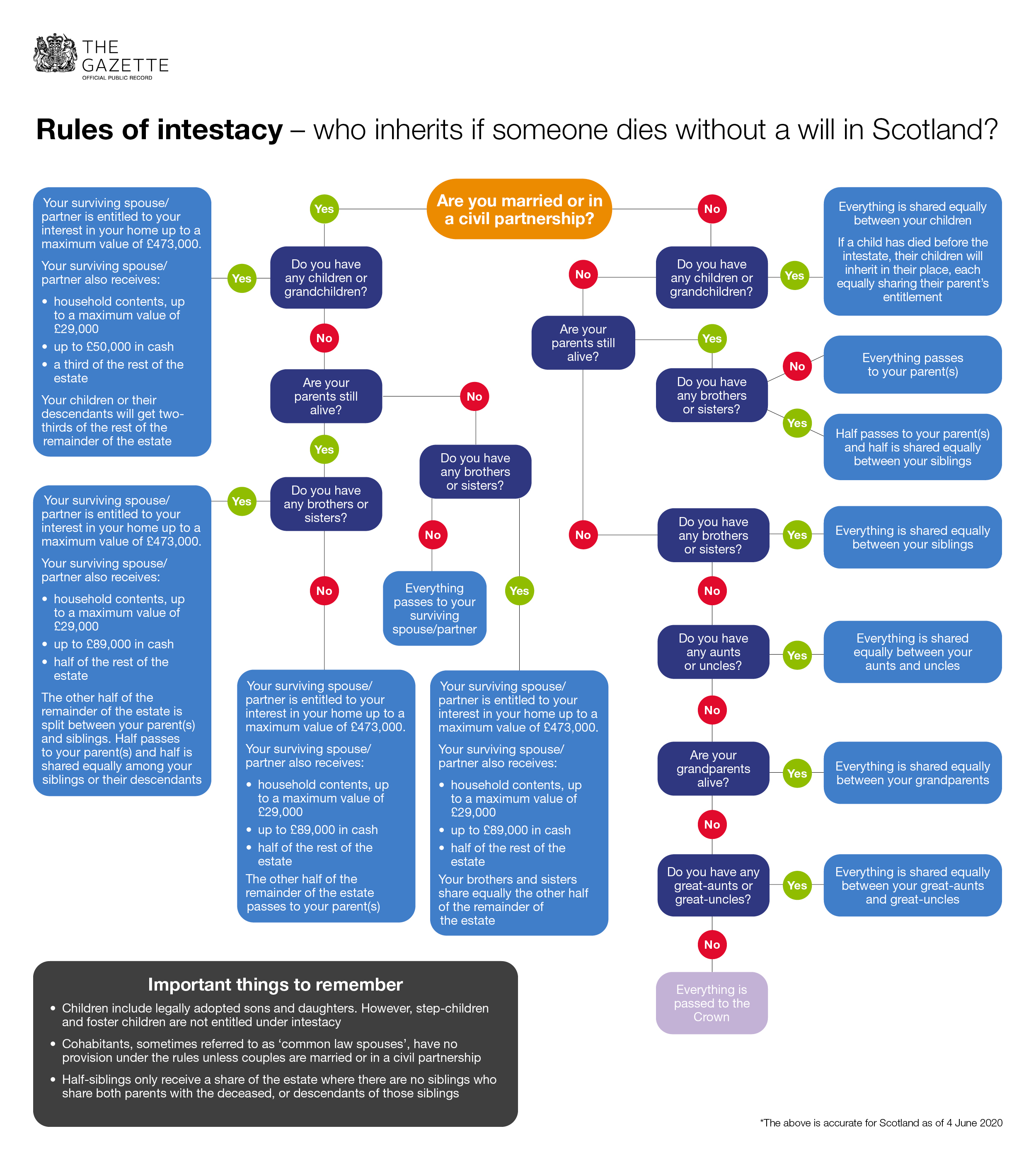What are your legal rights in Scotland for inheritance?
What are legal rights in Scotland? Susanne Batchelor of Brodies LLP explains how these apply to inheritance and highlights what individuals need to be mindful of if they are considering a legal rights claim in Scotland.

What are legal rights in Scotland?
In Scotland, when someone dies while domiciled in Scotland at the date of death, whether testate (with a will) or intestate (without a will), forced heirship rules will apply to their estate (money, property and possessions). These rules are known as legal rights.
Legal rights are a distinctive feature of Scottish law and only apply if the deceased died domiciled in Scotland. Legal rights:
- can be claimed by the deceased’s surviving spouse or civil partner and the children of the deceased
- are claimed from the deceased's worldwide ‘moveable estate’ (IE. not property or land) after all moveable debts have been deducted
- are automatic, so you won’t need to make an application to the court
- are considered a debt on the deceased’s estate in relation to beneficiaries (the person(s) inheriting assets from the estate) and will take priority over any legacies, included in the deceased’s will
If the will includes provision for the person making a legal rights claim, that person must decide whether to accept their provision under the will or claim their legal rights (or neither). They cannot take both. If the person claiming legal rights accepts any asset or share of the estate left to them in the will, they are presumed to have discharged their legal rights claim.
Legal rights must be claimed within 20 years of the deceased’s death. Therefore, executors (the person(s) dealing with the will) should be cautious; if the estate is distributed and a legal rights claim then emerges within the 20-year period, the executor could find themselves personally liable to pay that claim.
What are the legal rights of spouse and civil partners in Scotland?
The legal rights of a spouse/civil partner are either:
- one half of the moveable estate if there are no surviving children
- one third if there are surviving children
Spouses/civil partners who are separated will still be able to claim legal rights until divorce, or until their legal rights are discharged via a Separation Agreement.
What are the legal rights of children in Scotland?
Children are collectively entitled to either:
- one half of the deceased's movable estate if there is no spouse/civil partner
- one third if there is a spouse/civil partner
For deaths on or after 10 September 1964, adopted children can claim against their adopted parent’s estate, and have no claim to their natural parent’s estate.
If an adult child has died before their parent, their child (or a ‘remoter descendant’) can claim legal rights in place in of his/her late parent. Representation also applies to adopted children of the deceased.
What happens if someone does not want to claim their legal rights?
As previously mentioned, if the deceased has left a valid will, legal rights will apply automatically. However, it is possible for an individual with a claim to formally discharge their legal rights. This can be done before or after death, but the effect of doing so is different:
- if it is done before the death, the person is treated as pre-deceasing the testator (the person who made the will)
- if it is done after the death, the person is not treated as pre-deceasing the testator
Executors should provide all individuals with a legal rights claim, with a calculation of their legal rights and invite them to sign a formal discharge if they do not wish to claim their legal rights. If legal rights are being discharged, this should be done in writing and within two years of the date of death to ensure there are no adverse consequences for inheritance tax.
Are there legal rights in England and Wales?
Unlike in Scotland, there is no system of 'forced heirship' automatically granting a spouse, cohabitee or children a share of an estate on death in England and Wales, regardless of the provisions of a will. The law grants full testamentary freedom to leave an estate in a will as someone sees fit.
The caveat to this is that claims can still be made against an estate under the Inheritance (Provisions for Family and Dependents) Act 1975 in England and Wales by those who argue a will does not make 'reasonable financial provision' for them. This legislation enables a claimant to ask the court to alter the distribution of the estate of a deceased person, where that person's will or the rules of intestacy (if there is no will) fail to make ‘reasonable financial provision’ for them.
Are there going to be changes to legal rights in Scotland?
Legal rights will apply in almost all estates where the deceased died domiciled in Scotland. This is something everyone should be aware of.
The topic of legal rights has received significant attention in recent years following reports by the Scottish Law Commission on proposed changes to Scottish succession law, and the Scottish Government's responses to same. However, despite alternative models being put forward to replace the current rules on legal rights, no changes are expected imminently.
If you are thinking about making a claim, it’s important to seek professional legal advice.

About the author
Susanne Batchelor is a partner at Brodies LLP, in specialising in wills, estates and succession planning.
See also
What are the intestacy rules in Scotland?
Making a will in Scotland during the Coronavirus (COVID-19) lockdown
What to do when someone dies outside Scotland
Find out more
Inheritance (Provisions for Family and Dependents) Act 1975 (Legislation)
Succession (Scotland) Act 1964 (Legislation)
Family Law (Scotland) Act 2006 (Legislation)
Image: Getty Images
Publication date: 14 December 2020
Any opinion expressed in this article is that of the author and the author alone, and does not necessarily represent that of The Gazette.
